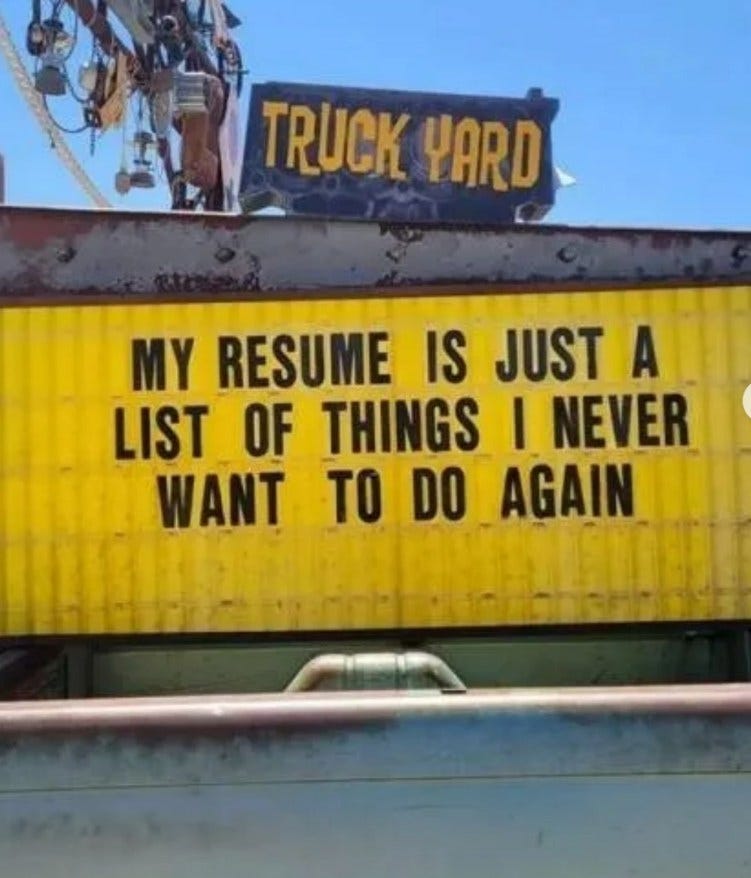Embracing Your Job History in 2025: How to Highlight Past Skills in New Interviews
Using Your Job History to Your Advantage
Many people believe that their job history is just that—history—and not something that holds relevance for their current or future roles. They assume that the skills they acquired in previous positions are outdated and no longer applicable to their desired career paths. However, I submit that your job history and older skills remain as crucial as they were when you first developed them. These skills have honed and shaped your professional persona, and there are effective ways to bring them to light during interviews for new jobs.
Understanding the Value of Your Job History
Your job history is a testament to your growth and adaptability over the years. Each role you have held has contributed to your professional development, equipping you with a unique blend of skills and experiences. These skills may include problem-solving, leadership, communication, and time management—all of which are highly transferable and valued across various industries.
Common Interviewer Concerns and How to Address Them
It can be frustrating when you're perceived as fitting a specific mold, making it challenging to break free and pursue new opportunities. Interviewers often express concerns that can feel like barriers, but they also offer insights into how you might better position your experience. Here are common concerns and strategies to address them:
"We're looking for someone with more diverse experience in this specific area."
In this situation, emphasize the breadth of your experience and how it has prepared you to tackle new challenges. Highlight projects or tasks from your past roles that required you to step outside your comfort zone and adapt to new situations. Showcase your ability to learn quickly and apply your skills in diverse contexts.
"Your background is impressive, but we're concerned about your lack of direct experience in this particular role."
Acknowledge the interviewer's concern and pivot to discussing how your past experiences have equipped you with a solid foundation. Draw parallels between your previous roles and the new position, demonstrating how the skills you developed are relevant and transferable. Share specific examples of how you have successfully transitioned to new roles in the past.
"We feel your strengths align more closely with your current role rather than the one we're hiring for."
Reframe this concern by discussing your motivation for seeking a new challenge and how your current strengths can be an asset in the new role. Explain how your desire for growth and development has led you to pursue this opportunity. Provide examples of how you have leveraged your strengths in different capacities to achieve success.
"We think you'd be more successful continuing to excel in your current expertise."
Express your appreciation for the interviewer's recognition of your expertise. Then, share your enthusiasm for expanding your skill set and contributing to a new area. Highlight instances where you have excelled beyond your primary expertise and made significant contributions. Emphasize your commitment to continuous learning and professional growth.
"We're concerned about how quickly you can adapt to a completely different type of work."
Address this concern by showcasing your adaptability and resilience. Provide examples of how you have successfully navigated changes and adapted to new environments in the past. Highlight your proactive approach to learning and your ability to quickly grasp new concepts and technologies.
Tips for Highlighting Transferable Skills
To effectively convey the relevance of your job history and skills, consider the following tips:
Identify Key Skills: Review your past roles and identify the core skills you developed. Focus on skills that are transferable and align with the requirements of the new position.
Create a Skills-Based Resume: Develop a resume that highlights your transferable skills and accomplishments rather than just listing job titles and responsibilities.
Craft a Compelling Narrative: Prepare a narrative that connects your past experiences with the new role. Share stories that illustrate your ability to apply your skills in different contexts.
Leverage Recommendations: Gather recommendations from colleagues and supervisors who can attest to your versatility and ability to excel in various roles.
Prepare for Interviews: Practice responding to common interviewer concerns. Develop concise and confident answers that emphasize your transferable skills and adaptability.
TLDR
Your job history is more than just a record of past employment—it's a valuable asset that has shaped who you are as a professional. By understanding the enduring relevance of your skills and strategically highlighting them during interviews, you can confidently pursue new opportunities and demonstrate your readiness for new challenges. Embrace your job history, and let it propel you towards a successful and fulfilling career.
[Want to discuss this further? Hit me up on Twitter or LinkedIn]
[Subscribe to the RSS feed for this blog]
[ Subscribe to the Bi-weekly Copilot for Security Newsletter]
[Subscribe to the Weekly SIEM and XDR Newsletter]
[Learn KQL with the Must Learn KQL series and book]
[Learn AI Security with the Must Learn AI Security series and book]
** Need a Tech break?? Sure, we all do! Check out my fiction novels: https://RodsFictionBooks.com





